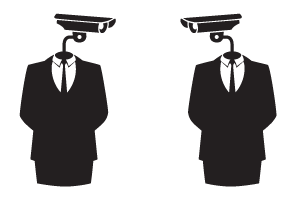

I love Evgeny Morozov's (@evgenymorozov) tweet defining the acronym SMART as Surveillance Marketed As Revolutionary Technology. It has provided me with a wealth of material for my alternate storytelling channels, and provides an excellent litmus test to apply to companies I come across during my monitoring of the API space.
As I'm reading do smart devices mean dumb security, out of Defcon this year, I'm reminded of his funny, yet also very troubling definition of SMART. I'm coming across an increasing number of connected devices who have incomplete API programs available. Meaning APIs are present, available on the open Internet, but required documentation, support, and other essential resources are missing--which like mobile, tends to often mean security and privacy considerations are incomplete as well.
This last week I talked about how venture capital investment can provide some incentives that are at odds with healthy, stable, consistent, and secure API operations. You see this play out with mobile devices, where a platform is so focused on the mobile app so heavily, they pretend the web APIs behind are invisible, which is also a practice I am seeing rapidly evolve with the Internet of Things (IoT).
Companies are racing to connect everyday objects to the Internet because they want to convince consumers to buy a new product, that will give them access to the valuable data that will be generated (a precedent set by the mobile evolution). In the race to create this new breed of products that consumers will want, and generate this new, highly valuable data, the willingness to secure these new data streams, and protect the safety and privacy of consumers is often very low on the list of priorities.
As stated in the BBC article out of Defcon, these devices will become a playground, of hackers, whatever their motivations might be. The average person will be unknowingly building out the Internet in this very unstable fashion, giving away their data, privacy, and of those around them. The greed behind the pushing of SMART objects into our personal and professional worlds will happily continue if they are given continued access to this extremely valuable data, and surveillance exhaust.
I'm not convinced that corporations, institutions, the government, or individuals will all be up to the task when it comes to securing all of this tech we are inviting into our worlds, not when there are so many badly behaved, poorly incentivized players willing to build this dystopian version of the Internet out. This will not play out well...
